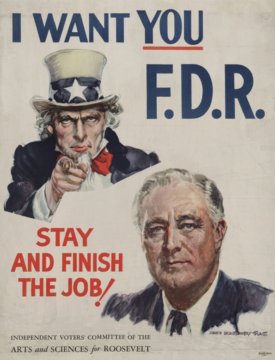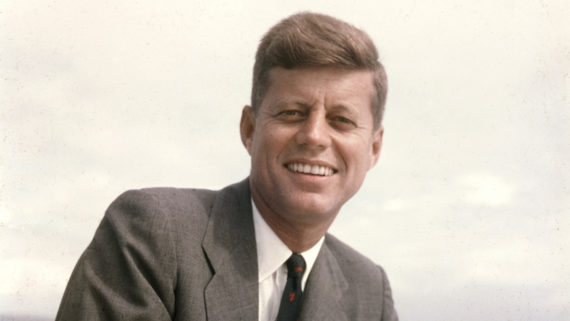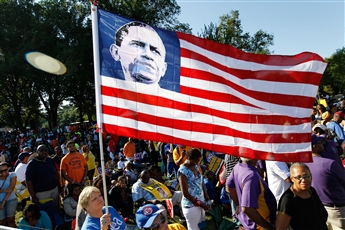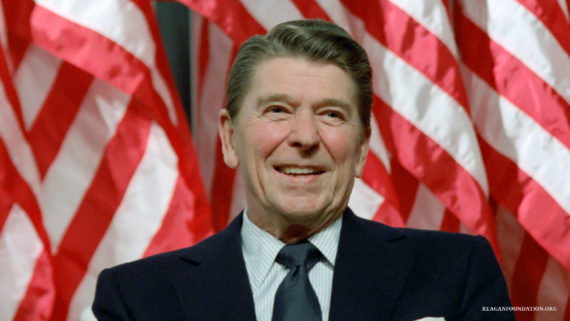For the past year I’ve been thinking a lot about different perspectives and cultures. This isn’t exactly about beliefs, but simply how people think due to their early surroundings. Obviously there can be people who think independently, so this article will contain a lot of generalizations, but it’s worth noting for a historical perspective. Most people with standards in return want their kids to live by some kind of standards. Same goes for religious leaders and religious motivated people. If we want to share the grace of Christ we should actively understand people’s perspectives in order to preserve what is good and, in time, move past what is wrong. When we don’t take time to understand different perspectives, the beliefs we wish to share will be left behind. If we fail to influence culture through its ever changing outlook on the world, then what G.K. Chesterton saw in Britain will become our reality: “The business of Progressives is to go on making mistakes. The business of Conservatives is to prevent mistakes from being corrected.”
In the past I have touched on some of the core principles of our country’s revolution. While there is a lot to talk about when it comes to early America, today I thought it would be interesting to review perspectives from the 20th and 21st centuries. Many history classes only talk about 20th century America, so this will hopefully be an article more people can relate to. For some reason in modern day we like to categorize everything, including generational gaps. Since what decides a person’s “generation” seems relative, I’ll be using some generalizations.
 Before I get to the meat of this article let me explain where it came from. Last year there was a new Call of Duty video game that had been released, specifically taking place in World War II. Just WWII being brought up in pop-culture again got me thinking about the time the world was in. The United States was coming out of the Great Depression, then tasked with fighting a world wide war. Millions of men were drafted, especially those born in the 1920s. Men and women back home still worked in factories supplying much of the materials for the war effort. This meant a whole generation that had to deal with the Great Depression, then had to spend even more time taking care of WWII. We had a good 10-15 years where our country didn’t have time to raise their children the way we traditionally had, instead we were busy simply trying to survive economically and literally. This created many to see a father figure in the government.
Before I get to the meat of this article let me explain where it came from. Last year there was a new Call of Duty video game that had been released, specifically taking place in World War II. Just WWII being brought up in pop-culture again got me thinking about the time the world was in. The United States was coming out of the Great Depression, then tasked with fighting a world wide war. Millions of men were drafted, especially those born in the 1920s. Men and women back home still worked in factories supplying much of the materials for the war effort. This meant a whole generation that had to deal with the Great Depression, then had to spend even more time taking care of WWII. We had a good 10-15 years where our country didn’t have time to raise their children the way we traditionally had, instead we were busy simply trying to survive economically and literally. This created many to see a father figure in the government.

Franklin Delano Roosevelt became the embodiment of that father figure, and lead Americans into what is called the “Silent Generation.” Nothing personal against FDR, but because of the Great Depression, and the events following, a whole generation idolized our government. That’s why after WWII we think the 1950s were such a perfect time. While there was good, and the pop culture may have seemed good, we never hear of the bad because the majority stayed silent. This was a time where discussing politics and/ or religion was just seen as uninviting. Image was very important, because a good person was expected to look and sound like a good person. I believe this stemmed from the Great Depression. While mothers and fathers worked hard to support their families, kids had to help, and many had to help by staying quiet and doing what they were told. This has happened all throughout history, but the difference here is there was less discussion as to “why.” We had a whole generation living off traditional values, without the explanation as to why. Those who looked like they were following orders were considered the most respectable. Since stepping out of line seemed immoral, even bad things went unnoticed when committed by authority.
The Silent Generation gave birth to the Baby Boomers. Baby Boomers are the people born after WWII till 1965. And if anyone has done some research on the 1960s we know it wasn’t a very united time. Baby Boomers had all sorts of different groups, but the one remembered the most is the hippies (those born directly after WWII). Tired of cultural norms and the silence they were raised under in the 1950s, hippies were the exact opposite of the Silent Generation. They were socially liberal, accepting of anything non-traditional and on a regular basis sympathized with the Communist Party. I’d like to believe there were two types of hippies, the spiritual hippies and the political hippies. Some just did immoral things to because they didn’t believe in universal truths, while others tried to politically undermine America’s structure. While that was going on you had the Baby Boomers who followed along with their parents, and the later Baby Boomers who I mix in with Generation X (the following generation).

I’d also like to mention John F. Kennedy before continuing. While I disagree with much of his policy, his assassination is one of the most horrifying things that can happen to a country and to a family. He was a huge uniting force simply because he had many liberal beliefs, but the traditional image much of the Silent Generation looked for. Following him came Lyndon B. Johnson, who I contribute to much of the divisiveness between political parties and races since then. Since the 1960s, cities with a majority black population have unanimously voted Democrat, yet have stayed just as poor. This is because their welfare programs, planned or unplanned, only make these cities dependent on more government funding. This also took place in American territories and Indian reserves. How come, as Ronald Reagan later pointed out, are welfare programs growing? If these programs worked why would more people need them? Is the point of welfare to help people back on their feet, or keep entire communities voting Democrat indefinitely? During the same time we saw the federal government taking action against Bibles and prayer in schools, becoming a major turning point in the way we thought of family and public educational.
Since the hippy generation was causing quite a spectacle in the 1960s, more conservatives started to break free and voice their opinions. This is when Ronald Reagan joined the Republican Party and started vocalizing his viewpoints. It was thanks to those born during this time (a stirred up Silent Generation, late Baby Boomers, and Generation X) who got Reagan elected in 1980 with 44 states, and in 1984 with 49 out of the 50 states. Many (including one of my college textbooks) considered the 1980s to have been a return to “1950s traditional America.” My reply would be “kinda.” While it was truly a Christian-conservative revolution, it was not a return to the Silent Generation. First off, even Reagan pointed out a key mistake of the Silent Generation when he said, “I happen to believe that we’ve made great progress from the days when I was young and this country didn’t even know we had a race problem.” Politics, discrimination and religion were now openly being discussed by the conservatives, and they were winning because they were making the good guys popular again. Reagan successfully catered to what we know in our hearts is right, and knew the truth doesn’t have to change to be fashionable.
During the 80s and 90s came the birth and upbringing of the Millennial generation. At this point politics had become a major player in America’s culture, and that was a worry the Silent Generation didn’t have to deal with. Democrats and Republicans were no longer two parties, but seen as the liberal platform and the conservative platform. After George H.W. Bush failed to impress, we had one of the most unfavored elections predating Trump vs Hillary. Bill Clinton became president after an Independent failed to gain traction, which pulled votes away from Bush. As all this took place Reagan’s economic policies were boosting our economy, which aloud Bill Clinton to promote liberal spending with very little consequences. I’d like to refer to the 90s as the new silent generation, but for a completely different reason. Unlike the 1950s, people weren’t worried about image, but they also didn’t focus on politics. Instead we sat back in our churches as a happy silent majority. However as media and schools became more liberal, kids were taught that the true form of revolution wasn’t libertarianism, but tearing down capitalism. Morals became relative, and old hippy beliefs became prevalent in the media. Whether pop culture changed anyone’s mind or not, this has been an admitted motive by actors and producers in anything from Friends to Barney. Christians just ignored it, and when George W. Bush took office in 2001, he did very little to address social issues. I understand 9/11 was a huge event, but since Ronald Reagan there hasn’t been a president who’s explained the importance of individual responsibly or virtues. The Republican Party was turning into the old Democratic Party, and the Democratic Party became further and further secular humanistic. Then, the Great Recession hit.

All the time leading up to the Great Recession people had been taught that it was a presidential executive that got us out of the Great Depression, and therefor millions were in search for the next Democratic messiah. Thus came Barack Obama. I’ve written extensively about Obama (without him this blog wouldn’t exist), not because I like speaking out or because I want to prove people wrong, but because I saw what he was doing and Americans didn’t seem to understand it. The Constitutional structure is what protects our liberty. Not a structure which upholds a certain authority, but a structure which disperses and balances authority. For this free structure to stand, free people must believe in something bigger than themselves to keep the society from collapsing. This was our religious beliefs, orginating from the Bible. Obama on the other hand used federal agencies, executive orders and federal judges to rule on things never considered by legislators. Things millions thought were based in religion, or used to defend religious liberty. What was most startling is how it seemed he was trying to manipulate the way people thought. Hollywood celebrities came out with a PSA pledging allegiance to him, making it obvious their motives were more than legislative. When he said Americans should stop clinging to guns and religion, and that he wanted to fundamentally change America, he meant it. America has been in a Cold-Uncivil-War ever since.
Now America’s culture war has come close to turning two generation against each other to the point of actual civil war. As someone who was born between Generation Y (Millennials) and Generation Z, I can see the polar opposites. Millennials tend to buy into liberal authority because the 90s (under Bill Clinton) were a prosperous time, while the media absolutely destroyed George W. Bush as Millennials got older. If I was born a bit earlier I might have agreed. However since I was born close enough to the internet’s expansion, I quickly learned that literally anything can be false. Generation Z is even more extreme than I, where they remember the peaceful culture we had under George W. Bush, while riots broke out under Obama’s second term. Plus Generation Z is the first generation to grow up while the internet is fully developed, meaning they know everything they read isn’t true. Online, major corporations and news media is constantly found lying and spreading rumors just as much as “unprofessional” sites. Thanks to their time online, some people have referred to Generation Z as “Unpluggers” since most of them are “unplugging” from major cable networks, in favor of online alternatives. These two generations are two extremes, and due to one’s obsession with authority and the other’s obsession with skepticism, they tend to leave religion out of the equation.
Once again I somehow fell in the middle. I used my skepticism to strengthen my faith in God, and see that with all these false-facts (“fake news”) flying around someone had to be the voice of truth. Many of my friends who were introduced to the internet much younger than me took off with it. They were introduced to everything evil in the world due to social media, and their parents had no idea what they were signing up for. I wasn’t aloud on social media until I was 15 years old, and even then I had to quickly develop my worldview in order to stand against a constant barrage of horrible things posted online. It was like we HAD to develop our own standards and apologetics, or be eaten alive by a secular society online. That is why I write. Because if spending 4 years online has taught me anything it’s that people need help. Christians and conservatives were horribly unprepared to face the secular world online, and the secular world is constantly crying out for a meaning to life. Somehow I ended up here with a brain from 1776, a style from 1995 and refusal to grow up because I still believe I was right to begin with. If the Bible says to change and become like little children, why grow up? It’s a weird perspective that generally everyone disagrees with, but the people on my left are burning down CVSs and the people on my right believe in natural selection. So as outnumbered I feel online, I feel like in my time, God couldn’t have put me in a better place.

I’ll leave this excerpt from Ronald Reagan’s 1989 farewell address as a final thought, “An informed patriotism is what we want. And are we doing a good enough job teaching our children what America is and what she represents in the long history of the world? Those of us who are over 35 or so years of age grew up in a different America. We were taught, very directly, what it means to be an American. And we absorbed, almost in the air, a love of country and an appreciation of its institutions. If you didn’t get these things from your family you got them from the neighborhood, from the father down the street who fought in Korea or the family who lost someone at Anzio. Or you could get a sense of patriotism from school. And if all else failed you could get a sense of patriotism from the popular culture. The movies celebrated democratic values and implicitly reinforced the idea that America was special. TV was like that, too, through the mid-sixties. But now, we’re about to enter the nineties, and some things have changed. Younger parents aren’t sure that an unambivalent appreciation of America is the right thing to teach modern children. And as for those who create the popular culture, well-grounded patriotism is no longer the style. Our spirit is back, but we haven’t reinstitutionalized it. We’ve got to do a better job of getting across that America is freedom- freedom of speech, freedom of religion, freedom of enterprise. And freedom is special and rare. It’s fragile; it needs protection. So, we’ve got to teach history based not on what’s in fashion but what’s important.”

Scott
Very good ! I learn something new every time I read your blog.
Your Dad